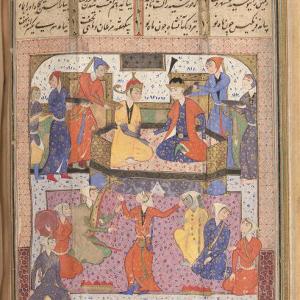
Miniatur aus Firdausī: Šāhnāma
© Bayerische Staatsbibliothek
In order to suppress the Muslim-led uprisings of the mid to late 19th century, the Qing government (1636-1912) authorized officials to execute criminals "on the spot" without standard forms of judicial review. This policy shift occurred against a backdrop of larger shifts in the administration of the non-Han regions of the Great Qing State, most importantly the effort by some Qing officials to replace non-Han judicial procedures with those of the Chinese interior.
This presentation will examine several specific criminal cases from Xinjiang in order to better understand the effects of these changes on Muslim subjects of the Qing state. Oidtmann will argue, contrary to previous scholarship, that although Qing officials were granted greater discretion over local criminal justice, this did not necessarily result in the harsher treatment of non-Han criminals. Paradoxically, officials acted with greater leniency towards non-Han Muslim subjects than Han subjects.
Ein Vortrag von Professor Max Oidtmann (LMU) in der Reihe Kulturen des Islam des Münchner Mittelost-Mittelmeer-Mittelasien-Zentrums (4MZ).
Der Vortrag findet in englischer Sprache statt. Weitere Informationen finden Sie auf der Website der Vorlesungsreihe.
